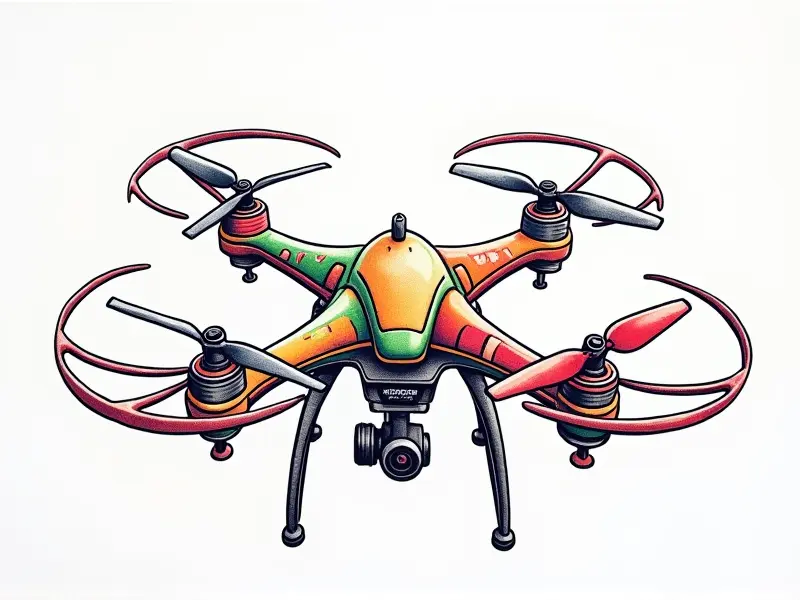Are RC airplanes safe?

Are RC Airplanes Safe to Fly?
Radio-controlled (RC) airplanes offer a thrilling and rewarding hobby for enthusiasts of all ages. However, as with any recreational activity, safety is paramount. Before you take the leap into the world of RC planes, it's essential to understand the risks involved and how to mitigate them.
RC Plane Safety: What You Need to Know
Flying RC airplanes can be an exhilarating experience, but it requires careful consideration of safety measures. Understanding the basics of RC plane safety is crucial for both beginners and experienced pilots alike. This article aims to provide a comprehensive guide on how to safely operate your RC aircraft.
Beginner's Guide to RC Plane Safety
If you're new to the hobby, it's important to start with the basics of RC plane safety. Here are some essential tips for beginners:
- Choose a Safe Flying Location: Opt for open fields or designated flying sites away from populated areas and busy roads.
- Wear Protective Gear: Always wear eye protection to prevent injury from small parts or debris.
- Familiarize Yourself with Controls: Spend time practicing on the ground before taking flight. Understanding your RC plane's controls is crucial for safe operation.
Common Risks in RC Airplane Flying
The most common risks associated with flying RC airplanes include:
- Collision with Obstacles: This can happen due to poor visibility or lack of situational awareness. Always check your surroundings before taking off.
- Battery Issues: Battery failure is a significant risk, especially if you don't maintain proper battery care and charging practices.
- Radio Interference: Electromagnetic interference can disrupt the communication between your transmitter and the plane.
Legal Aspects of RC Airplane Safety
Before flying an RC airplane, it's crucial to understand the legal requirements in your area. Here are some key points to consider:
- FCC Regulations: Ensure that your RC equipment complies with Federal Communications Commission (FCC) regulations.
- Aircraft Registration: Some countries require registration of larger or more powerful RC aircraft.
- No-Fly Zones: Avoid flying near airports, military installations, and other restricted airspace.
RC Plane Accidents: Causes and Prevention
Understanding the causes of accidents can help you prevent them. Common reasons for RC plane crashes include:
- Pilot Error: Improper handling or lack of experience often leads to accidents.
- Mechanical Failure: Regular maintenance and inspection are crucial to avoid mechanical issues during flight.
Ensuring Safety While Flying RC Aircraft
To ensure safety while flying your RC plane, follow these best practices:
- Regular Maintenance: Keep your aircraft in good condition by performing routine checks and repairs as needed.
- Battery Management: Use high-quality batteries and charge them properly to avoid failures during flight.
- Situation Awareness: Always be aware of your surroundings, including other people, obstacles, and weather conditions.
Protecting Others While Flying RC Planes
Flying responsibly is not only about protecting yourself but also ensuring the safety of others around you. Here are some tips to keep in mind:
- Avoid Crowded Areas: Do not fly near parks, schools, or other places with high foot traffic.
- Inform Others: Let people know that you're flying an RC plane and ask them to stay clear of the flight area.
Tips for Safe RC Airplane Operation
Here are some additional tips to enhance your safety while operating RC planes:
- Use a Spotter: Employ a spotter to help you monitor the plane's position and avoid obstacles.
- Landing Gear: Consider using landing gear that can absorb impacts, reducing the risk of damage during landings.
Understanding Risks of RC Airplane Flying
Flying RC airplanes comes with inherent risks. By understanding these risks and taking appropriate precautions, you can minimize the likelihood of accidents:
- Risk Assessment: Conduct a thorough risk assessment before each flight to identify potential hazards.
- Flight Planning: Plan your flights carefully, considering factors such as weather conditions and airspace restrictions.
RC Airplane Crash Prevention Guide
To prevent RC airplane crashes, follow these guidelines:
- Practice Proper Flight Techniques: Master the art of takeoff, landing, and maneuvering to avoid common mistakes that lead to accidents.
- Use Quality Equipment: Invest in reliable RC equipment from reputable manufacturers to reduce mechanical failures during flight.
Conclusion
Flying RC airplanes can be a fun and rewarding hobby, but it requires careful attention to safety. By understanding the risks involved, following legal guidelines, and adhering to best practices for safe operation, you can enjoy this exciting pastime without compromising your well-being or that of others around you.

